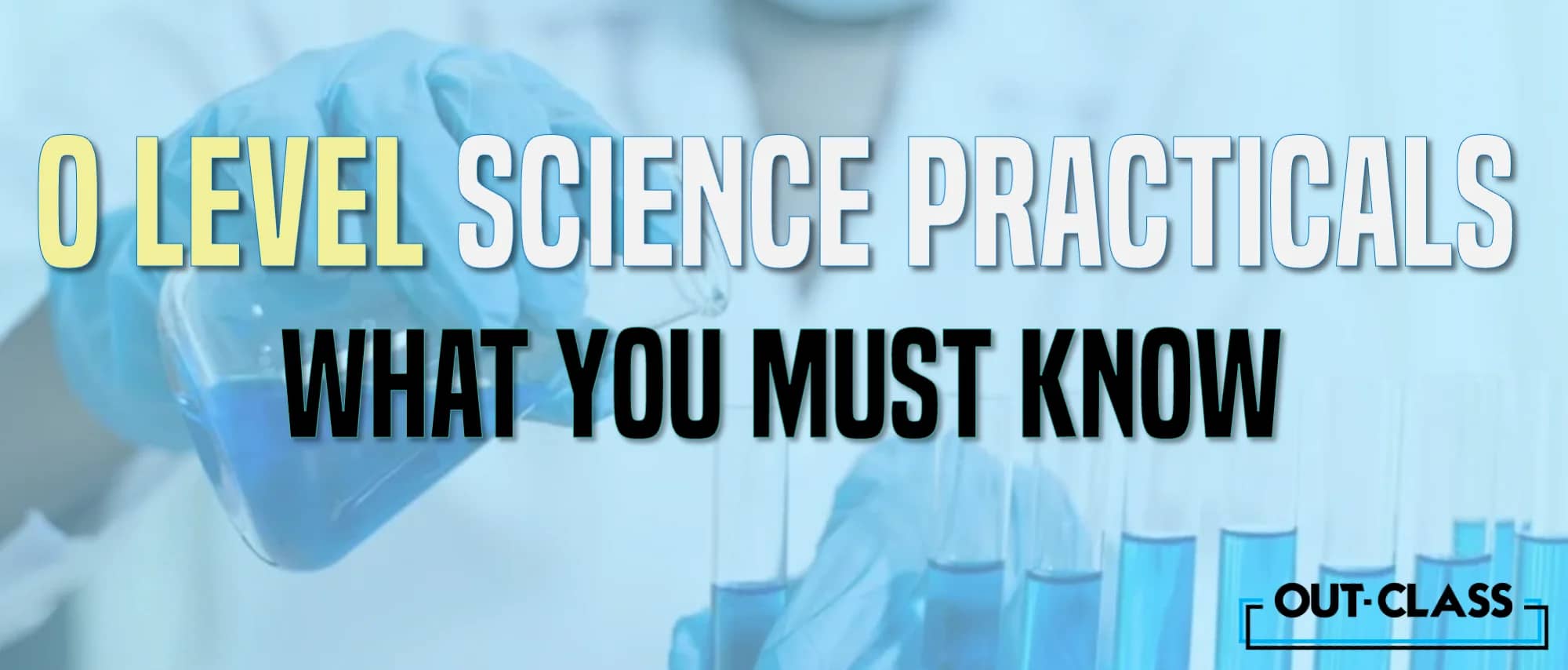How to Ace the O Level Science Practical Exams: A Guide for Students
The O Level Science practical exams are a vital component of the Science subjects - Physics, Chemistry and Biology. But more importantly, they’re the easiest ones to score in!
To break it down, the Science practical O Level tests how well you can work and implement Science concepts. These exams assess your ability to apply theoretical knowledge, showcasing your proficiency and skills in handling scientific apparatus, and data and analysing results.
So let's unravel some nuggets of wisdom, also known as expert tips, on how to prepare for the Science practical O Level part of the exams and ace them with confidence. Get ready to transform your preparation game!
Tip 1: Review the Science Syllabus and Past Papers
The journey to conquer the O Level Science practical exams begins with a strategic first step - an in-depth review of the syllabus and past papers, such as for the Chemistry Practical O Level. The syllabus serves as a roadmap, outlining the topics and skills needed for the practical exam, as well as the format and structure of the O Level paper.
Practicing past papers is the second cornerstone of your preparation. Past papers help familiarise the question types and experiments likely to be repeated such as in the O Level Biology practical. Notes are the second key resource for excelling at the Science Practical O Level. Notes will help you get material outside your classes, such as Physics Practical O Level notes, from a friend who studies at another school.
By practising past papers, you can improve your time management, accuracy and problem-solving skills massively. The O Level Biology, Physics and Chemistry Practical past papers can be easily solved using O Level notes, crash courses and guidelines provided in the examiner report by Cambridge International Examinations.
Tip 2: Revise the Theory
Another crucial step to prepare for the Science practical O Level exams is to revise the theory and concepts relevant to the practical skills. Picture this: if you're gearing up for the Chemistry Practical O Level, your revision should be around pivotal topics like the Mole concept, Rates of Reaction and Energy Changes. Similarly, if you are gearing up for the O Level Biology practical, your revision should be around topics like Cell Structure, Enzymes, Respiration, Osmosis and Diffusion. Likewise, for those navigating the Physics Practical O Level, revisiting topics such as Forces, Energy, Electricity, Waves, and Light is paramount.
You can use multiple sources to revise the theory and concepts, such as textbooks, notes, specimen papers, worksheets and videos.
But here's the game changer - if the prospect of textbook learning doesn't quite align with your vibe, there's an alternative. Go over the interactive O Level crash courses at Out-Class. Their lectures transcend the conventional, are accessible anywhere, and you can easily understand the definitions, formulas and units of physical quantities commonly used in the practical exam.
Tip 3: Practice the skills and techniques
As they all say, practice makes perfect. The final step to prepare for the O Level Science practical exams is to practise the skills and techniques required for the experiments. In addition, various tools such as measuring cylinders, burettes, pipettes, thermometers, stopwatches, balances, voltmeters, ammeters, and light gates will be used. You should be familiar with these tools and be able to use them effectively and securely.
Moreover, you should rehearse the methods used in the experiments, such as measuring masses, volumes, and temperatures, constructing circuits, generating graphs, creating diagrams and tables, computing uncertainties and errors, determining the presence of substances, and formulating conclusions - each deserves its spotlight in your rehearsal.
Practicality takes center stage here - literally. Engage in hands-on experimentation in your school's lab or, under supervision, in the comfort of your home. This practical approach ensures that your skills are theoretical and grounded in a real-world application, setting the stage for a confident stride into the O Level Science Practical exams.
To view Chemistry ATP videos, enroll in the Chemistry course! [Sneak Peek available on YouTube]
Conclusion
If you adequately prepare for them, the O Level Science Practical exams are not as challenging as they might initially appear. Do not forget to go over and revise the curriculum and previous O Level exams, study the theories and ideas through O Level crash courses, and put your abilities and techniques into action. We wish you well on your Science Practical O Level examinations!



